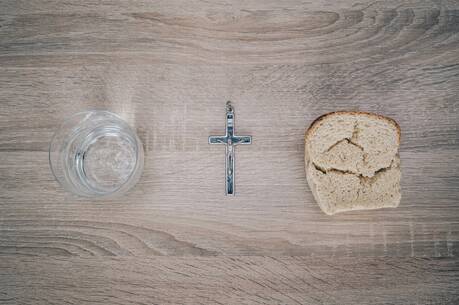Clothed With the Sun
Marian feasts season the liturgical calendar as the Assumption falls in the middle of Ordinary Time. Though rooted in ancient tradition, especially the Eastern tradition of the “Dormition of Mary,” this celebration, unlike the Annunciation, the Visitation and Our Lady of Sorrows, has no explicit scriptural basis. Yet the readings lead us more deeply into the mystery. In profoundly allegorical language, the Book of Revelation pictures a queen of the universe, clothed with the sun, standing on the moon with a crown of 12 stars. In intense labor, this woman (in context, a symbol of Israel) will bring forth a messiah who will be persecuted by worldly powers. For centuries the church has appropriated this woman as Mary, the new Eve, who now reigns with the Messiah (Christ).
The Gospel portrays an earthly woman about to give birth, who sings in joy of God’s greatness and goodness to her people, Israel. Like the prophets of old, Mary speaks on behalf of the lowly and heralds God’s judgment on the rich and powerful. Appropriate to today’s feast is Mary’s prediction that “all generations will call me blessed, because the Almighty has done great things for me.” Among these magnalia Dei (“God’s mighty deeds”) is the assumption of Mary “body and soul into heaven.”
In many of the beautiful icons of the “dormition of Mary,” Mary is pictured in death surrounded by the disciples, as Jesus carries her “soul” to heaven in the form of an infant. But essential to the Assumption is the word body. As the body is the bearer and symbol of the person in this life, so too will it remain when all are brought to life in Christ (1 Cor. 15:22). Mary Aquin O’Neill, R.S.M, a theologian and the director of the Mt. St. Agnes Theological Center for Women, sees this as crucial for women today and for all of theology. Mary’s bodily assumption is a corrective to any misogyny that sees the female body as a source of defilement or evil (see 1 Tim. 2:9-15). A woman’s body carried Christ in her womb; a woman’s body reigns in glory.
This article also appeared in print, under the headline “Clothed With the Sun,” in the July 29, 2002, issue.







